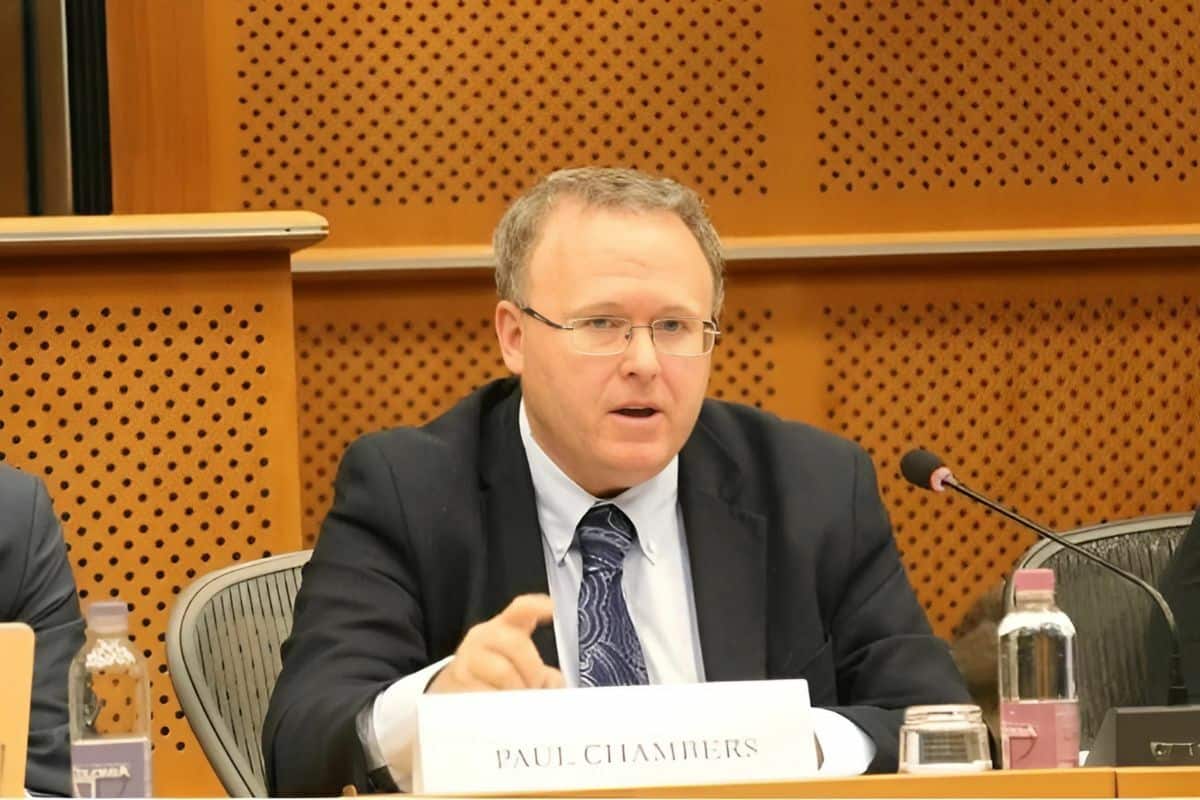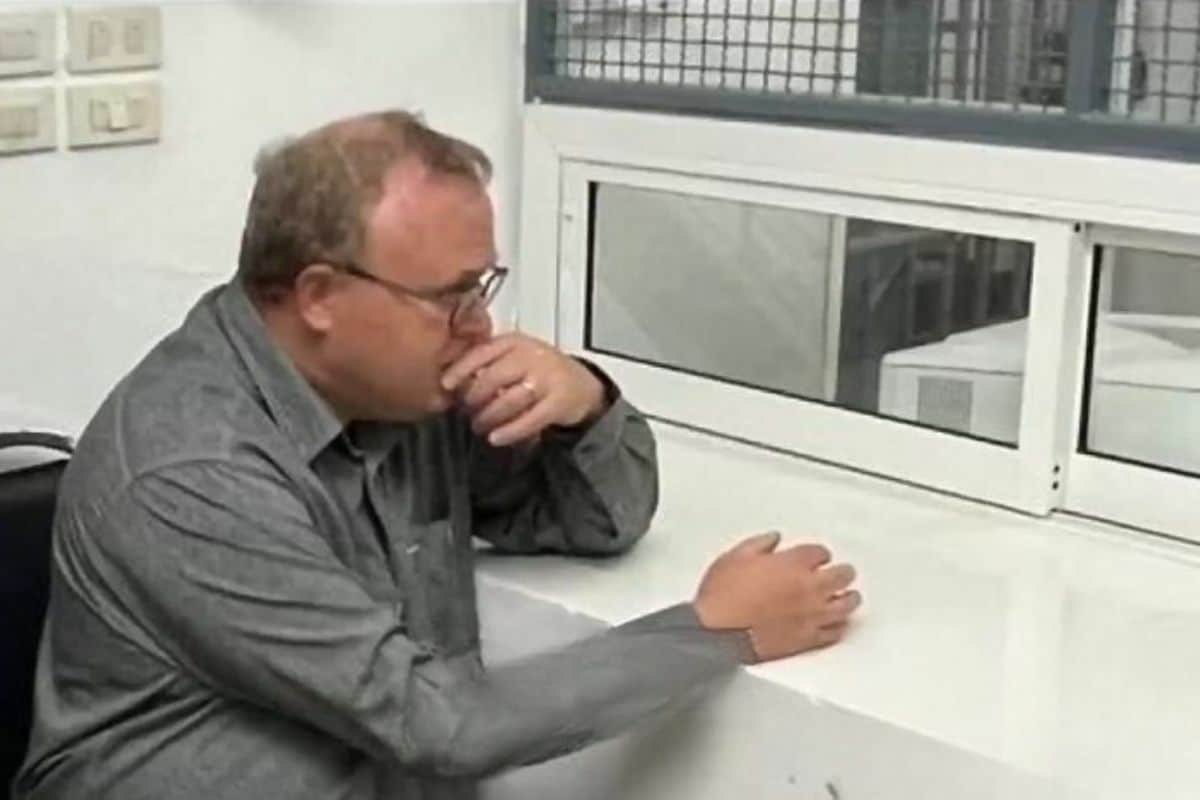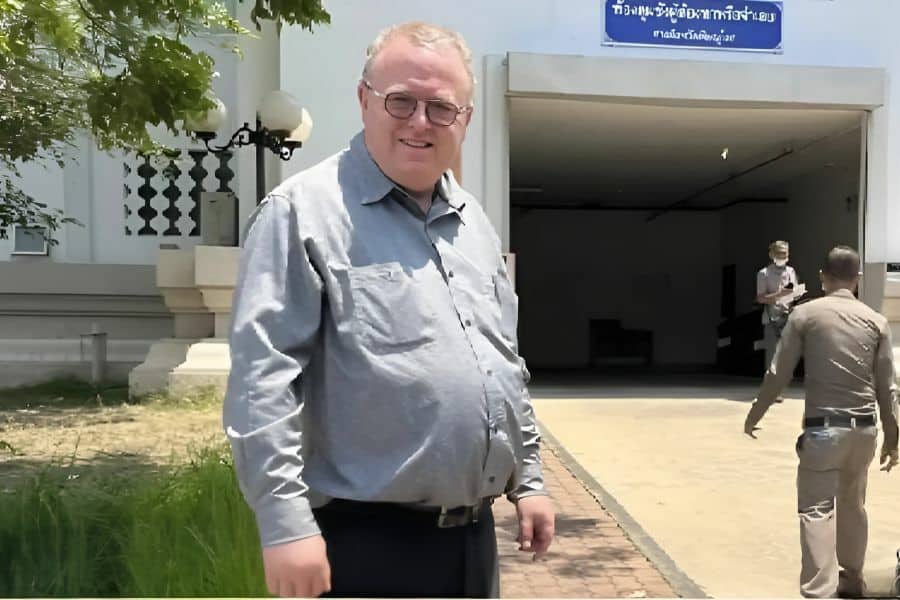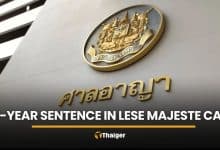American lecturer’s Thai visa revoked over lese majeste charge

The American lecturer facing up to 15 years behind bars if convicted for defaming the Thai royal family, today had his visa revoked.
Paul Chambers, an academic based at Naresuan University’s ASEAN Community Studies Institute, was officially arrested yesterday, April 8 at Phitsanulok City Police Station.
Accompanied by officials from the US Embassy in Thailand, interpreters, and lawyers from the Thai Lawyers for Human Rights Centre, Chambers surrendered himself following an arrest warrant issued by the Phitsanulok Provincial Court. The arrest is in connection with an alleged violation of Section 112 of Thailand’s Criminal Code and the Computer Crime Act, also know as lese majeste.
The charges stem from a 2024 article Chambers allegedly posted on the website of the ISEAS-Yusof Ishak Institute, an academic organisation in Singapore.
The article is said to contain defamatory content about the Thai king, which is punishable under Thailand’s strict royal defamation laws.
Chambers denied the allegations, insisting that he did not post the article and was not involved in managing the website.

During his interrogation, Chambers stated that he had no personal connection to the article in question and was not an administrator for the website.
He explained that the text in question was an academic introduction to a seminar on Thai studies, in which he had participated, and was not a personal opinion or defamatory content. However, Thai officials maintained their stance, charging him with serious offences related to national security.
After surrendering, Chambers was taken to Phitsanulok Provincial Court, where a detention request was filed. Despite an appeal for bail, the court ruled that due to the severity of the case and the high penalty potential, bail would not be granted.
A second bail request, with an increased amount, was also denied.
Chambers will remain in custody at Phitsanulok Provincial Prison while the investigation continues, according to Thai Lawyers for Human Rights Centre.

This case has drawn attention from both legal experts and human rights groups, raising concerns over Thailand’s use of lese majeste laws to stifle freedom of expression.
Chambers’ legal team plans to appeal the court’s decision and continues to work on clearing his name. The outcome of this case could have significant implications for academic freedom and free speech in Thailand.
Latest Thailand News
Follow The Thaiger on Google News:


























